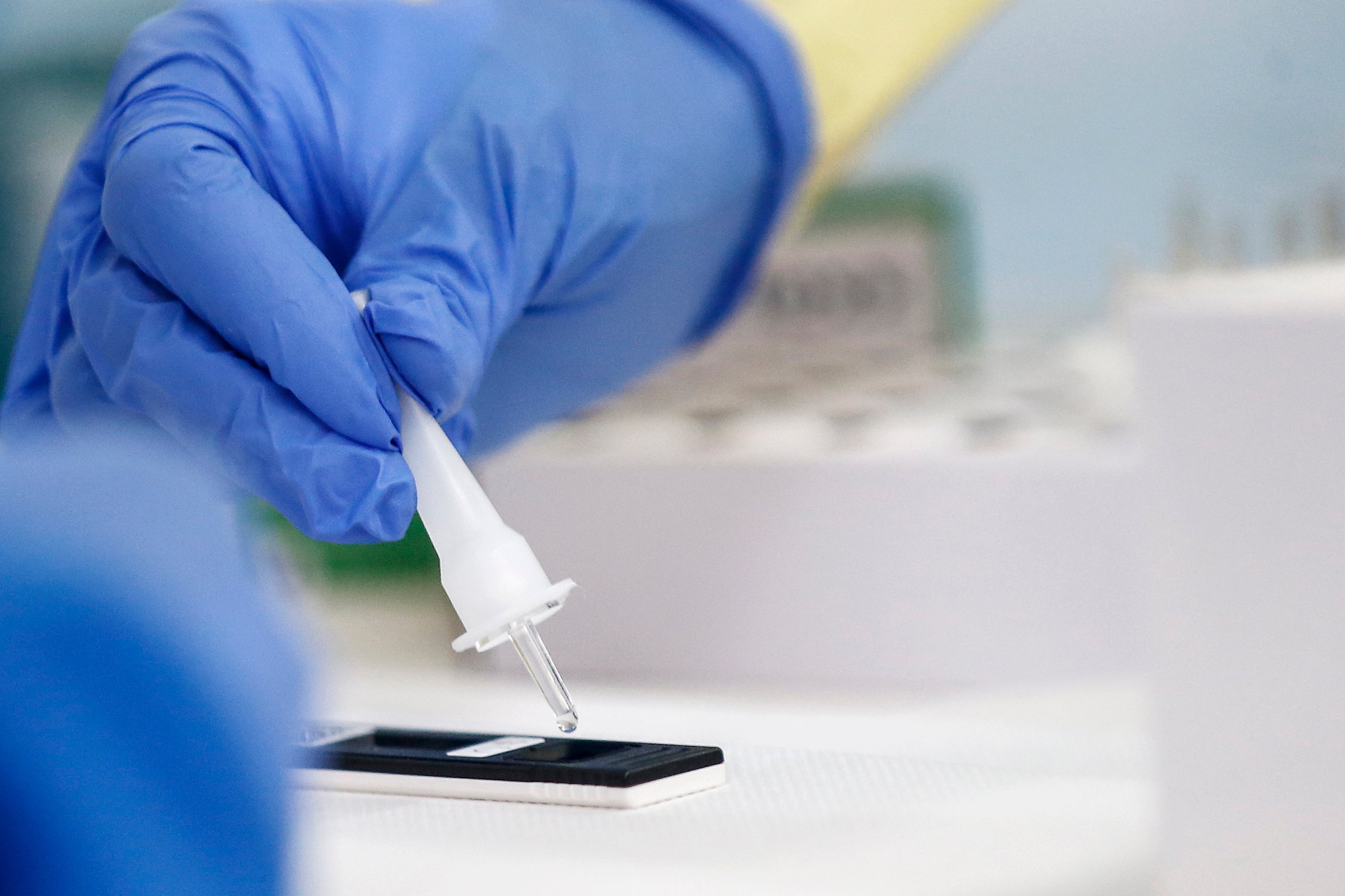WHO, partners roll out faster COVID tests for poorer nations
The World Health Organization and partners have agreed to a plan to roll out 120 million rapid-diagnostic tests for the coronavirus to help lower- and middle-income countries make up ground in a testing gap with richer countries

Your support helps us to tell the story
From reproductive rights to climate change to Big Tech, The Independent is on the ground when the story is developing. Whether it's investigating the financials of Elon Musk's pro-Trump PAC or producing our latest documentary, 'The A Word', which shines a light on the American women fighting for reproductive rights, we know how important it is to parse out the facts from the messaging.
At such a critical moment in US history, we need reporters on the ground. Your donation allows us to keep sending journalists to speak to both sides of the story.
The Independent is trusted by Americans across the entire political spectrum. And unlike many other quality news outlets, we choose not to lock Americans out of our reporting and analysis with paywalls. We believe quality journalism should be available to everyone, paid for by those who can afford it.
Your support makes all the difference.The World Health Organization announced Monday that it and leading partners have agreed to a plan to roll out 120 million rapid-diagnostic tests for the coronavirus to help lower- and middle-income countries make up ground in a testing gap with richer countries — even if it’s not fully funded yet.
At $5 apiece, the antigen-based rapid diagnostic tests for which WHO issued an emergency-use listing last week, the program initially requires $600 million and is to get started as early as next month to provide better access to areas where it’s harder to reach with PCR tests that are used often in many wealthier nations.
The rapid tests look for antigens, or proteins found on the surface of the virus. They are generally considered less accurate — though much faster — than higher-grade genetic tests, known as PCR tests. Those tests require processing with specialty lab equipment and chemicals. Typically that turnaround takes several days to deliver results to patients.
WHO Director-General Tedros Adhanom Ghebreyesus hailed the program as “good news” in the fight against COVID-19.
“These tests provide reliable results in approximately 15 to 30 minutes, rather than hours or days, at a lower price with less sophisticated equipment,” he said. “This will enable the expansion of testing, particularly in hard-to-reach areas that do not have lab facilities or enough trained health workers to carry out PCR tests.”
“We have an agreement, we have seed funding and now we need the full amount of funds to buy these tests,” he said, without specifying.
Dr. Catharina Boehme, chief executive of a non-profit group called the Foundation for Innovative New Diagnostics, said the rollout would be in 20 countries in Africa, and would rely on support of groups including the Clinton Health Access Initiative. She said the diagnostic tests will be provided by SD Biosensor and Abbott.
Peter Sands, the executive director of the Global Fund, a partnership that works to end epidemics, said it would make an initial $50 million available from its COVID-19 response mechanism. He said the deployment of the quality antigen rapid diagnostic tests will be a “significant step” to help contain and combat the coronavirus.
“They’re not a silver bullet, but hugely valuable as a complement to PCR tests, since although they are less accurate, they’re much faster, cheaper and don’t require a lab,” he said.
Many rich countries have also faced problems rolling out accurate tests, and testing itself is no panacea -- countries like France and the United States have all faced backlogs and hiccups at times, and rapid tests in Britain and Spain turned out to be inaccurate.
But rolling out testing in poorer countries aims to help health care workers get a better grip on where the virus is circulating, in hopes of following up with containment and other measures to stop it.
Sands said high-income countries are currently carrying out 292 tests per day per 100,000 people — while the lowest-income countries were conducting 14 per 100,000 people.
He said the 120 million tests would represent a “massive increase” in testing, but were still a fraction of what is needed in those countries.
___
Follow AP pandemic coverage at http://apnews.com/VirusOutbreak and https://apnews.com/UnderstandingtheOutbreak